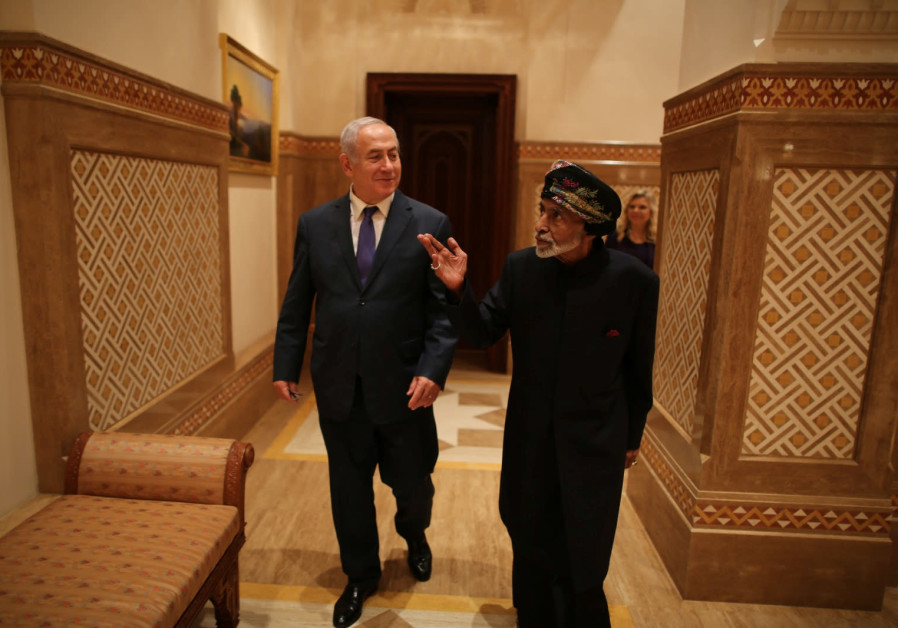Israel is increasingly perceived as linked to the southern Arab states, including Gulf countries, and Egypt.

A little noticed oped at The Independent on September 17 accused Israel of being part of a new “axis of evil.” Written by philosopher and cultural critic Slavoj Zizek, it accused Israel of being involved in this axis alongside “Saudi Arabia, Egypt and the emirates [UAE].” The rules of the game are changing, the author claimed.
Zizek’s main wrath was reserved for criticism of Israel’s policies in the West Bank and Saudi Arabia’s war in Yemen. This little-noticed piece dovetailed with another article at Middle East Eye that claimed the attack on Saudi Arabia’s Abqaiq by drones was “in retaliation for Israeli drone strikes on Hashd al-Shaabi bases and convoys in August, which were co-ordinated by the Saudis.”
No evidence was presented for this extraordinary claim but the article claimed Saudi has financed Israeli drone strikes and that they were launched from Eastern Syrian areas controlled by the Syrian Democratic Forces. This narrative is part of several recent pieces that allude to the same claims.
The lack of evidence here is not as important as the perception. Israel is increasingly perceived as linked to the southern Arab states, including Gulf countries, and Egypt. The level of alliance and cooperation is not always spelled out. For instance The New York Times reported in February a “secret alliance” of Israel and Egypt regarding Israeli support for Egyptian operations against ISIS in Sinai.
Iranian media unsurprisingly tries to play up these stories. Press TV in Iran claimed in August that “Israel, UAE hold secret US-mediated talks” and claimed on September 5 that an Emirati jet landed in Israel. It has also pushed programs on “the UAE’s deal with Israel” and Iran’s foreign minister Javad Zarif has even gone as far as to attack the UAE as a “second Israel.” Press TV even claimed this summer that Israel inked a “spy aircraft deal” in the Gulf.
The narrative of “second Israel” in the Middle East is one heard in propaganda from Iran to Turkey and other countries. Turkey’s Yeni Safak claimed in January that there was a “secret Israel, Saudi, UAE meeting” that “takes aim at Turkey.” Another website called “Middle East Observer” claimed in March 2018 that there was a “conservative front” of Israel-US-Saudi-UAE plan to topple Turkey’s leader. The article, by Ibrahim Karagul, said that there is a “UAE-Saudi-Israel-US axis” that was established and founded to “stop Turkey.” Qatar’s Al-Jazeera has also sought to highlight claims that a “UAE official says Arab countries should be more open to Israel.”
It’s easy to sketch out the agenda here. Israel is portrayed as working closely with countries that tend to oppose both Iran and the Muslim Brotherhood. This includes the UAE, Saudi Arabia and Egypt. There are other countries that appear more neutral in this narrative, including Jordan and Kuwait. Oman, which hosted Prime Minister Benjamin Netanyahu in October 2018, is mentioned less often. Jordan has been harshly critical of Israel regarding lack of progress on peace. Kuwait prefer to play a role as mediator in the Saudi-Qatar dispute.
The perception in Turkey, Iran and some other media that there is an emerging front in which Israel and Gulf states share common interests and views of the region is not that new or unique, but it has been given more wind recently due to controversy over Saudi Arabia’s policies, and criticism of Israel’s role, either by media in Syria, Lebanon or Iraq. This is part of the jockeying for position in the post-Syrian conflict middle east in the era after the defeat of ISIS and as the US appears poised for further retreat from the region.
The difficulty facing Jerusalem is that despite claims that doors, previously closed, are opening in the world and region, Israel is still isolated politically. Netanyahu’s statements about Israeli ties to the region, made in December 2018, and “contacts with most of the Arab countries,” do not translate into much public warmth. That is a challenge because Israel’s adversaries tend to express a lot of warmth for each other.
As reported by The Jerusalem Post
